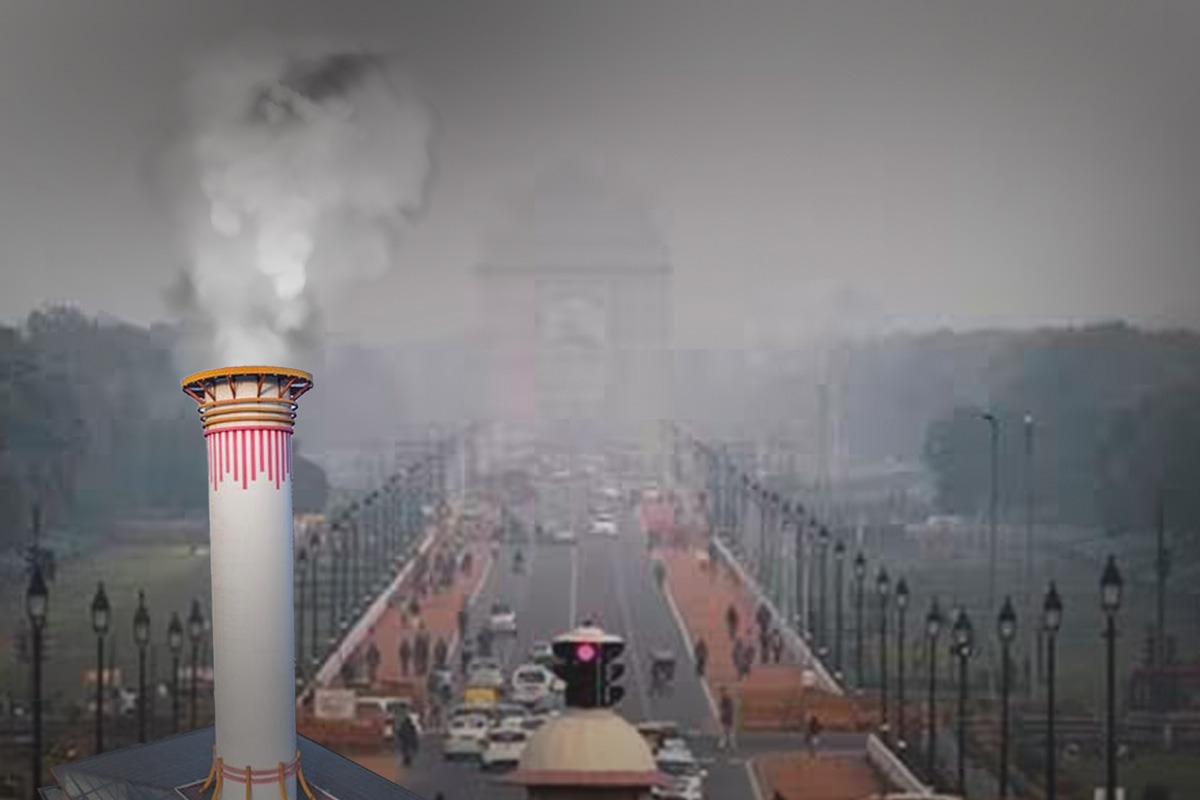Delhi is grappling with ‘very poor’ air quality, exacerbated by stable atmospheric conditions. The Delhi Pollution Control Committee (DPCC) reports that experimental smog towers, including a Rs 25-crore installation at Connaught Place, have proven ineffective in addressing the city’s air pollution. The Connaught Place smog tower considered a potential remedy, demonstrated limited impact, reducing air pollution by only up to 17% within a 100-meter radius. Despite the formation of a Special Task Force dedicated to the Air Quality Index (AQI) issue, viable solutions remain elusive for Delhi’s pollution concerns.
Delhi’s air quality has a notorious history, ranking as the worst globally according to WHO and the US-based Health Effects Institute surveys. This pollution extends to surrounding districts, contributing to India’s annual death toll of 2 million due to air pollution, making it the country’s fifth-largest killer. The city faces the highest global death rate from chronic respiratory diseases and asthma, significantly affecting 50 percent of all children, and resulting in irreversible lung damage.
The complex and multifaceted causes of Delhi’s air pollution include vehicular and industrial emissions, construction and road dust, biomass burning, waste burning, and stubble burning. Meteorological conditions, such as low wind speed, high humidity, and temperature inversion, exacerbate these sources by trapping pollutants near the ground. The pollution issue is not confined to Delhi alone but extends to the entire Indo-Gangetic Plain, impacting millions of people who share the same toxic air.
Instead of playing the blame game, political parties need to hold the Special Task Force accountable and implement several solutions. Strengthening the enforcement and compliance of the existing rules and regulations, and imposing strict penalties for violations are solutions. Enhancing the coordination and cooperation among the various stakeholders, including the central government, the state governments, the local bodies, the civil society, and the public at a war footing is next. Promoting the use of clean and renewable energy sources, such as solar, wind, and biogas, and phasing out the use of fossil fuels, especially coal is one of the solutions. Decades ago, we should have implemented improvements to the public transport system, encouraged the use of non-motorized modes of transport like cycling and walking, and adopted electric vehicles.
Various farm mechanisation solutions have been introduced to address the issue of stubble burning, encompassing tools such as balers, shredders, zero tillage equipment, happy seeders, mulchers, and straw reapers. The adoption of these advanced technologies serves a dual purpose by not only reducing harmful pollutant emissions linked to stubble burning but also enhancing soil fertility. Additionally, these mechanised tools contribute to sustainable farming practices.
Platforms like Tractorkarvan are instrumental in promoting and facilitating the adoption of these farm mechanisation solutions in India. Their role involves advocating for the use of advanced farming technologies and providing support to farmers in integrating these tools into their agricultural practices. By doing so, these platforms play a crucial role in mitigating the adverse environmental impacts associated with stubble burning, contributing to a more sustainable and eco-friendly approach to agriculture in the country.
We are still on track with implementing the National Clean Air Programme (NCAP), which aims to reduce the PM2.5 and PM10 concentrations by 20-30% by 2024, with 2017 as the base year. Increasing public awareness and participation in the fight against air pollution, and educating the people about the health and environmental impacts of their actions is the agenda. Delhi’s air pollution is a crisis that needs urgent action from all the stakeholders. The right to breathe clean air is a fundamental right of every citizen, and it is the duty of the government and society to ensure it.












